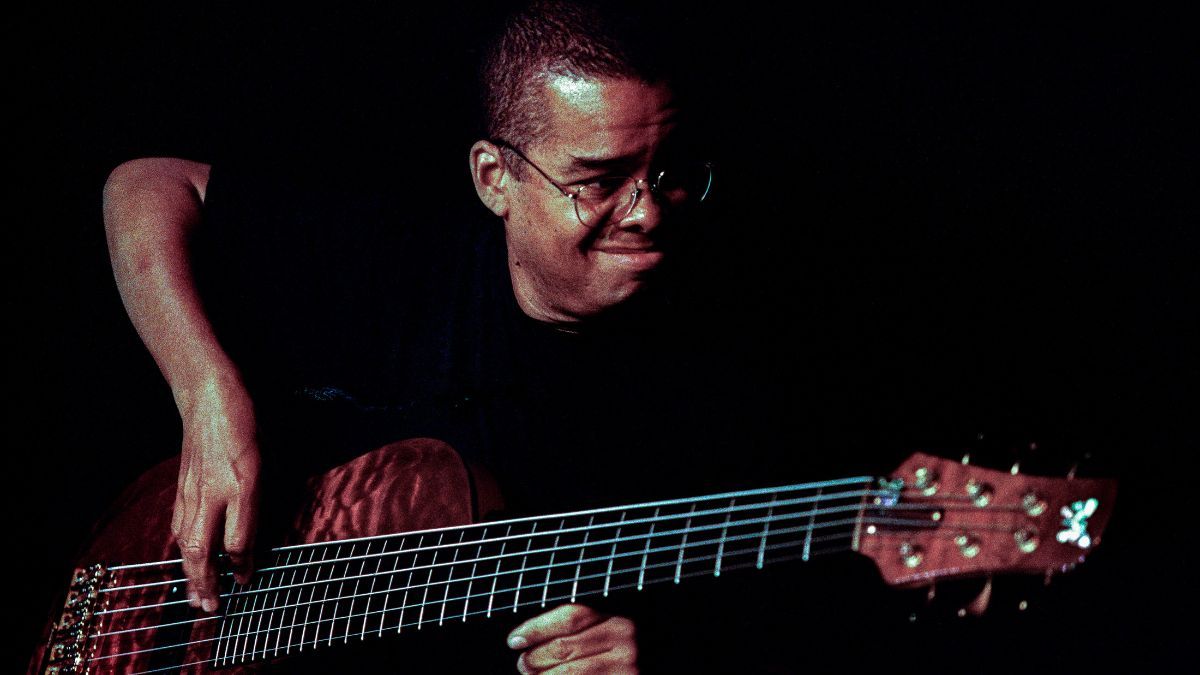
Anthony Jackson, the session legend widely credited with pioneering the six-string bass, has died aged 73.
The news has been confirmed by high-end bass manufacturer Fodera Guitars, with whom Jackson worked very closely. Jazz fusion virtuoso Al Di Meola has also paid tribute to Jackson’s inventive legacy.
“We are deeply saddened to learn of the passing of Anthony Jackson – one of the most visionary and influential bassists in the history of our instrument,” Fodera Guitars wrote.
“Anthony’s impact extended far beyond the notes he played,” it says. “He pioneered the concept of the six-string ‘contrabass guitar,’ revolutionizing the role of the electric bass in art, jazz, funk, and beyond.”
Jackson had started working with Fodera back in 1984, and the firm helped “embody” Jackson’s six-string bass vision and turn it into a reality. Jackson and his unique instrument – which was tuned BEADGC, and referred to as a 'contrabass guitar' – pushed the bass to new frontiers.
Armed with his actualized contrabass concept, which unshackled him from what he felt was the limited four-string design, Jackson sprinkled his distinct low-end magic on the work of some of the biggest names in the business.
From Steely Dan to long-time Michael Jackson producer Quincy Jones, Luther Vandross, Pat Metheny, and Paul Simon, he showed that bass players need not just hold down a supportive musical role. They could be harmonic and imaginative.
“Anthony was one of the most extraordinary musicians I’ve ever had the honor to play with – a true innovator whose genius on the six-string contrabass reshaped modern music,” wrote Di Meola. “His sound, precision, and soul were unmatched.”
Jackson played across Di Meola's discography, and can be heard on some of his most iconic records.
“From Land of the Midnight Sun, Elegant Gypsy to countless unforgettable moments on stage, he brought a power and sensitivity that could move anyone who listened,” the guitarist adds. “Rest in peace, my brother. Your music will resonate forever.”
The musician consistently challenged musical traditions, once asking, “Why is four strings the standard and not six?” And Fodera rallied to his aid.
“The only reason it had four [strings] was because Leo Fender was thinking of an upright bass, but he built it along guitar lines because that was his training,” he said (via MusicRadar). “The logical conception for the bass guitar encompasses six strings.”
Away from Di Meola, Jackson’s body of work is packed with huge credits. Across his career, he dabbled in everything form jazz and fusion to pop and beyond, playing with Chaka Khan, Diana Ross, Madonna, The Bee Gees, Simon and Garfunkel, and more.
Nathan East once said his playing on Chaka Khan’s Move Me No Mountain should be studied by all bassists, while his bassline on the O’Jays’ For the Love of Money stands as another landmark moment for the instrument.
In 2009, he and James Jameson Jr sat down with Bass Player to reveal the biggest secrets to the grooves of Motown, which doubled as an insight into the musical foundation that Jackson's genius work built upon.







